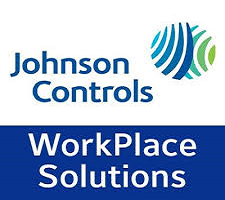October 17, 2014
Nearly three quarters of workers report office temperature affects performance
 A workplace’s design may divide occupiers’ opinions, but is not usually a source of conflict. However, when it comes to the temperature of the office, tempers can flare. Legal guidance is sketchy, as health and safety law demands that workplaces must not fall below 16C, but doesn’t set an optimum temperature. This leaves the ‘ambient’ office temperature very much open to interpretation. Earlier this year, researchers from Lancaster University advised that the average office temperature of 22 degrees C was way too high, and that simply turning down the thermostat and asking occupants to don another layer could do much to address global warming. Now over 70 per cent of workers have reported their ability to work is compromised by the temperature in the office. In a survey conducted by Business Environment, two thirds admitted to getting annoyed when a colleague changed the air con to a setting they were not comfortable with and this annoyance can escalate, with 58 per cent admitting that rows have broken out over the office temperature. More →
A workplace’s design may divide occupiers’ opinions, but is not usually a source of conflict. However, when it comes to the temperature of the office, tempers can flare. Legal guidance is sketchy, as health and safety law demands that workplaces must not fall below 16C, but doesn’t set an optimum temperature. This leaves the ‘ambient’ office temperature very much open to interpretation. Earlier this year, researchers from Lancaster University advised that the average office temperature of 22 degrees C was way too high, and that simply turning down the thermostat and asking occupants to don another layer could do much to address global warming. Now over 70 per cent of workers have reported their ability to work is compromised by the temperature in the office. In a survey conducted by Business Environment, two thirds admitted to getting annoyed when a colleague changed the air con to a setting they were not comfortable with and this annoyance can escalate, with 58 per cent admitting that rows have broken out over the office temperature. More →




























October 16, 2014
Americans would still prefer a male boss to a female boss
by Sara Bean • Comment, News, Workplace